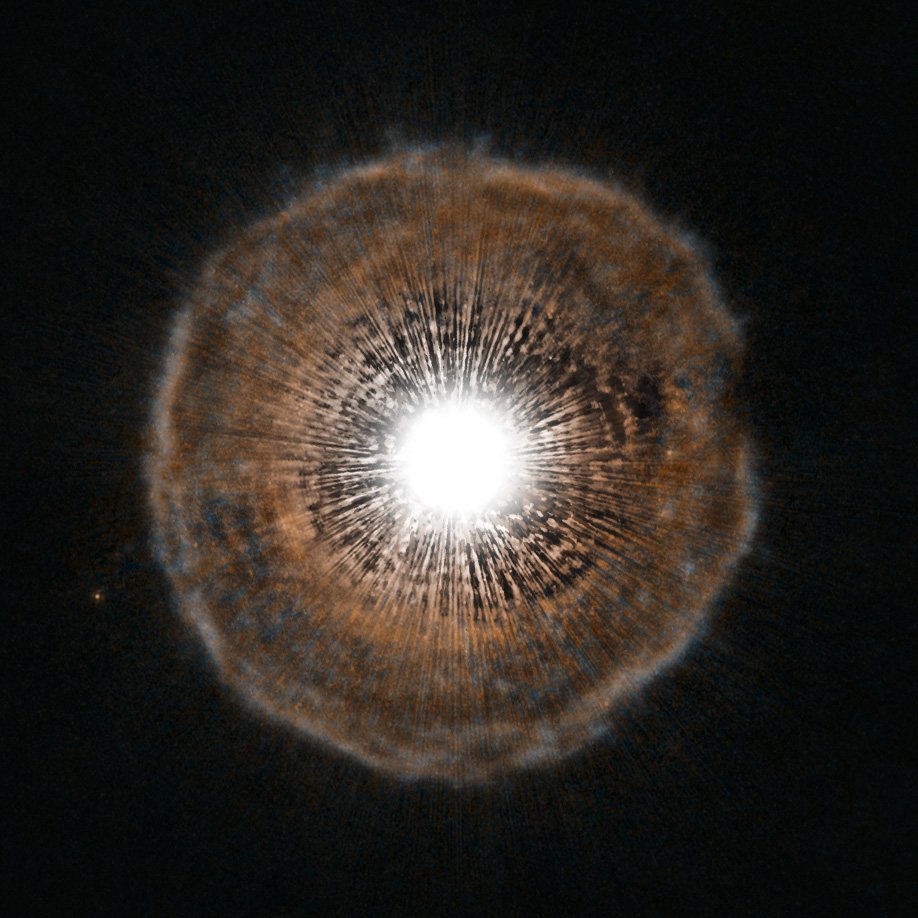It’s the same arguments over and over and over… I was having a discussion with someone I quite like and respect recently, wherein he told me that he believed some god or other must exist because he couldn’t believe this whole big universe could come from nothing.

I understand. I was there, once, believing the same thing: how could all this something come from nothing? Couldn’t possibly. Therefore, some god or other. I’d not faced that idea squarely: I’d not asked the crucial question. Why not simply eternity? Why should there be a creation at all? As Victor Stenger says in God and the Folly of Faith, “In any case, the proposal that time did not exist until it was created is incoherent. Creation has the concept of time embedded in it. Something that did not exist ‘before’ now exists ‘after.’ You can’t have a creation if you have no time.” When you start digging round in the whole idea of a creator, the concept falls apart. There’s no difficulty a creator solves that doesn’t create more problems. But for some reason, people find it easier to believe in some impossible mind rather than, “Stuff exists because it always existed.” They still want to know how stuff got there, how something can come from nothing.
Stenger says, “The simplest answer is that [the universe] always existed, so it didn’t have to come from anything…. the argument that the universe can’t be eternal is erroneous and, furthermore, an eternal multiverse is suggested by modern cosmology.” He cites several papers that explore that answer – I’ll link them at the end for the curious.
Whole popular physics books explore sensible answers to the something-from-nothing question. Lawrence Krauss wrote A Universe from Nothing, and Stephen Hawking’s got The Grand Design. We’ve made inroads on the issue. While the subject is still contentious, I have no doubt that one day, matters will have progressed to the point that the whole “something from nothing” question will be quite satisfactorily settled by science. The gap where theology or vague spirituality wedges a god-type entity grows ever narrower. Next thing you know, the god-concept will be completely out of a job, reduced to begging spare change on street corners or relying upon its ability to milk the willfully uninformed for a living.
But even without answers from physics, it doesn’t follow that something existing means some sort of god or godly force must have put it there. Robert Ingersoll handily pointed this up over a century ago, when he wrote the following to Rev. Henry M. Field:
I agree with you that the world is a mystery, not only, but that everything in nature is equally mysterious, and that there is no way of escape from the mystery of life and death. To me, the crystallization of the snow is as mysterious as the constellations. But when you endeavor to explain the mystery of the universe by the mystery of God, you do not even exchange mysteries—you simply make one more.
Nothing can be mysterious enough to become an explanation.
That’s really the long and short of it. “God did it” sounds like a simple and elegant explanation until one realizes it’s no explanation at all. I’ll go with an honest unsolved-but-in-the-process-of-being-investigated mystery over a mystery-masquerading-as-an-answer-but-really-isn’t any day.
David Atkatz, “Quantum Cosmology for Pedestrians,” American Journal of Physics 62, no. 7 (1994): 619–27.
David Atkatz and Heinz Pagels, “Origin of the Universe as a Quantum Tunneling Event,” Physical Review Letters D 25 (2001): 083508.
James B. Hartle and Stephen W. Hawking, “Wave Function of the Universe,” Physical Review D 28 (1983): 2960–75. (pdf)
André Linde, “Quantum Creation of the Inflationary Universe,” Physics Letters 108B (1982): 389–92.
Alexander Vilenkin, “Boundary Conditions in Quantum Cosmology,” Physical Review D 33 (1986): 3560–69; “Creation of Universes from Nothing,” Physics Letters B 117B (1982): 25–28. (pdf)


“I’ll go with an honest unsolved-but-in-the-process-of-being-investigated mystery over a mystery-masquerading-as-an-answer-but-really-isn’t any day.”
My attitude too. A lot of people simply can’t deal with uncertainty, but I’ve never been one of them. Uncertainty is a goad to investigation.
I had a realization along these lines earlier this winter (saying last year is still too weird, yes I know it’s March). Because something that assembles itself is so much cooler than something built – a painting by an artist can be wonderful and impressive, but you’ll always know that someone took the time to learn to paint, put the colours together, think of the design, etc. But imagine a painting that comes to be on its own – through random processes! How impressive would that be? Like the crystallization of water into snowflakes. Or the Mandelbrot leaves on that plant last week. Or the way cold fronts and warm fronts can combine to make a giant, organized hurricane. So much more awesome than just saying, [entity] did it. To me, anyways…
Theological “explanations” always make me feel like the “explainer” is trying to cheat me out of a chance to enjoy the most exciting sentence in science:
“We don’t know yet.”
I absolutely love you for this post. Thank you. Thank you. Thank you.